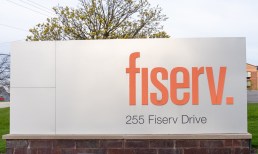Navigating the payments landscape can be a difficult, but for the nearly 800 million illiterate and 1 billion handicapped people around the world, it can pose a significant challenge. Norman Niemer, Developer of PayButler, chatted with MPD CEO Karen Webster about what it means to enable a voice for those whom payments may be leaving behind.
At the MasterCard Masters of Code Competition in NYC, the team of developers behind PayButler won the competition with their concept to empower cardholders who cannot read or write or who are handicapped with voice-enabled payments and the ability to manage their own payments and finances.
Through PayButler, which was built using MasterCard’s Simplify Commerce API, handicapped and illiterate users are able to use their voices to pay bill, utilize online payments, send money and check on their financial accounts. The cloud solution drives financial inclusion and supports payments via any device equipped with a microphone, speaker and/or Wi-Fi.
The voice-controlled service can work on mobile devices, wearables and even an Amazon Echo, on which it was demonstrated during the hackathon competition.
Niemer explained that he and his team were fascinated with the capabilities of the Amazon Echo and were eager to identify people who could be assisted by the innovative technology.
MasterCard’s plans to introduce prepaid benefits cards in developing countries inspired the PayButler team to think about the disadvantaged portions of these populations who may not have the necessary abilities to fully take advantage of the offerings.
Advertisement: Scroll to Continue
We’d love to be your preferred source for news.
Please add us to your preferred sources list so our news, data and interviews show up in your feed. Thanks!
“Those developing countries tend to have a lot of people who may not know how to use these cards and would really benefit from the technology,” Niemer said.
During the hackathon competition, the PayButler team showed how their solution could be utilized on an Amazon Echo device to allow someone who was unable to get out of their home or perhaps not able to manipulate keys on a computer to purchase groceries and have them delivered by just using their voice.
PayButler is equipped to handle getting payment card data on file and storing credentials, making the tasks of online purchases, sending money, and bill payment much easier for those who may be dealing with handicaps or who cannot read or write.
Unlike many of the ideas presented at hackathons that can be so forward-thinking that they are almost impractical to implement, PayButler is a concept that has the potential to serve an immediate need and solve a very real problem.
As the PayButler team prepares for the upcoming MasterCard Masters of Code Grand Finale competition in San Francisco, Niemer he would love to take PayButler further and “definitely would want to bring the idea forward.”
The team has setup a PayButler landing page where people can sign up for more information and has also reached out to various caregiver facilities to receive feedback on the solution and how it can be implemented with the services they are providing to disabled individuals.
Niemer said that the initial reactions to the service were very positive, but that it will still require a lot of work and consideration to ensure that the payment process offered by PayButler can work for everyone.
“When the final is over I think we really want to hit the road with that,” Niemer said.

 Add as Preferred Source
Add as Preferred Source



